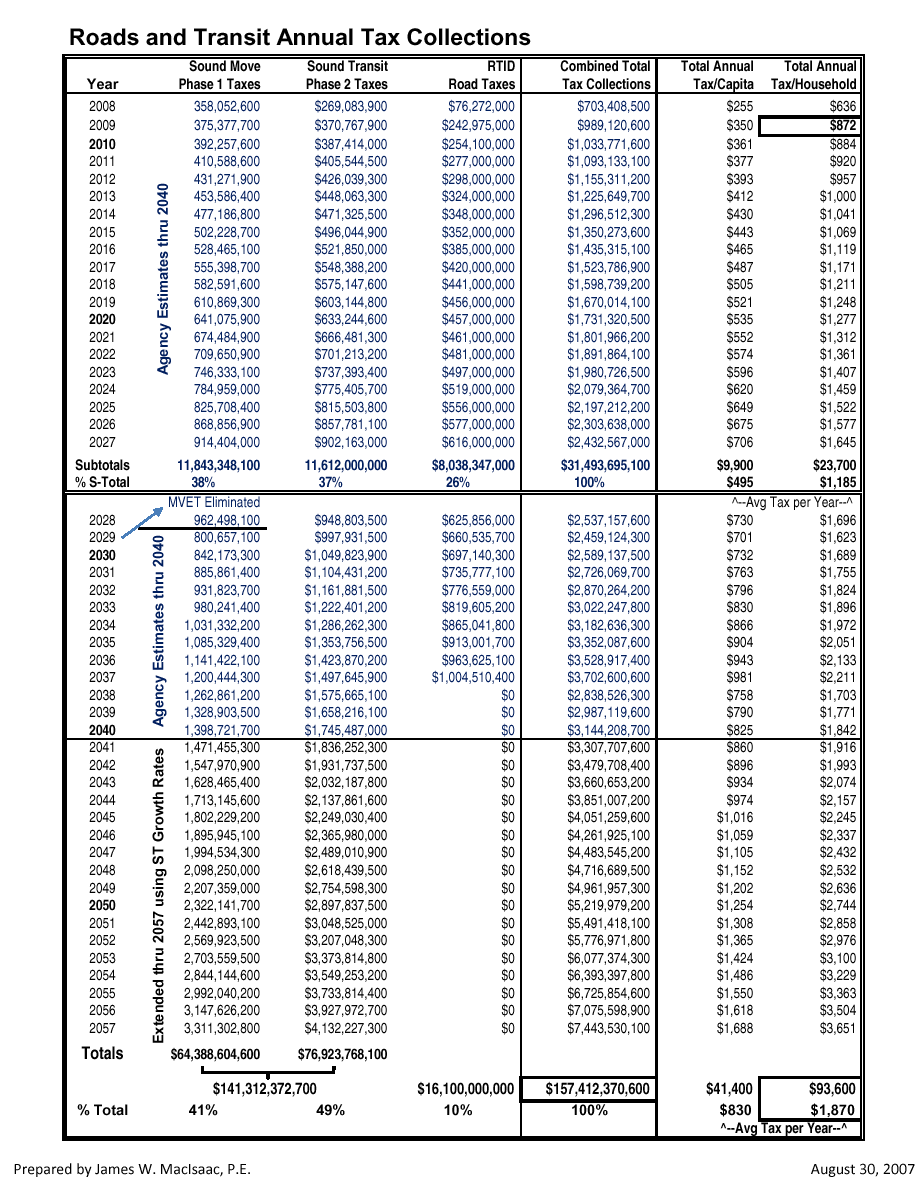www.RoadsAndTransitFactual.info
![]()
Prop 1: $157 Billion vs. All Those Other Numbers
by Jim MacIsaac, P.E.
![]()
The public is hearing costs of the Proposition 1 package ranging from $18 billion in backdated 2006 dollars to $157 billion in tax collections over the next 50 years from 2008 thru 2057 (see chart below). Let me clarify these differences.
